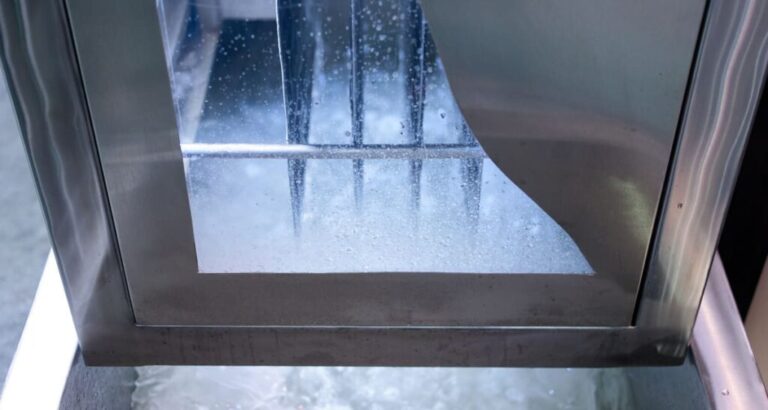Source Filmmaker (SFM) has revolutionized how animators create cinematic-quality animations, offering a blend of simplicity and power. At the heart of SFM workflows lies SFM Compile, the final and crucial step in bringing your animation to life.
This process encompasses rendering, adjusting visual effects, and exporting the final project into shareable formats.
This article dives deep into what SFM Compile entails, its importance, how to do it effectively, and ways to overcome common challenges.
1. What is SFM Compile?
SFM Compile is the technical process of finalizing an animation project in Source Filmmaker by rendering individual frames and combining them into a seamless video file. It turns your creative work into a polished product, suitable for sharing on platforms, showcasing to clients, or using in larger projects.
This step combines raw animation with lighting, sound, and textures, ensuring that all elements of the animation are visually consistent and meet the desired quality standards.
2. Why is SFM Compile Essential?

The importance of compiling animations cannot be overstated, as it:
2.1 Polishes Your Animation
The compile process brings all your hard work together, improving visual fidelity and ensuring every frame looks its best.
2.2 Makes Sharing Possible
By exporting into standard video formats, you can easily upload or distribute your animations.
2.3 Identifies Hidden Issues
During the rendering process, glitches or inconsistencies become apparent, allowing for last-minute fixes.
2.4 Enhances Workflow Efficiency
A properly compiled animation saves time in post-production, ensuring smooth transitions and ready-to-use outputs.
3. Step-by-Step Guide to SFM Compile
3.1 Prepare Your Animation
Before starting the compile process, ensure your animation is complete:
- Finalize movement, camera angles, and transitions.
- Add necessary effects and adjust lighting for the desired ambiance.
- Review audio tracks and sync them accurately.
3.2 Configure Rendering Settings
Setting up rendering parameters is critical for achieving high-quality results:
- Resolution: Choose between 720p, 1080p, or higher, depending on your needs.
- Frame Rate: A frame rate of 24 fps creates a cinematic feel, while 60 fps delivers smoother motion.
- Antialiasing: Activate antialiasing to eliminate jagged edges.
3.3 Render the Frames
Rendering converts your animation into individual frames or sequences:
- Use SFM’s render settings to control how each frame is processed.
- For large projects, render in sections to reduce the risk of crashes.
3.4 Export the Video
Once rendering is complete, export the animation in a suitable video format:
- MP4 is ideal for web use due to its balance of quality and file size.
- Consider exporting in lossless formats (e.g., MOV or AVI) for professional editing later.
4. Best Practices for SFM Compile
4.1 Optimize Your System
- Close unnecessary applications to free up system resources.
- Ensure your hardware meets the demands of high-resolution rendering.
4.2 Save Regularly
- Save project progress frequently to avoid losing work due to crashes.
4.3 Run Test Renders
- Render a small portion of the animation to evaluate settings before committing to a full compile.
5. Advanced Techniques to Enhance Your Compiling
5.1 Depth of Field and Cinematic Effects
- Use depth of field to create focus and direct attention to key areas.
- Experiment with lens flares, motion blur, and particle effects for added depth.
5.2 Use Layers for Rendering
Rendering in layers (e.g., background, characters, effects) simplifies post-production and allows for greater control over edits.
5.3 Leverage SFM Console Commands
Advanced users can utilize SFM console commands to fine-tune rendering parameters and troubleshoot errors efficiently.
6. Common Challenges During SFM Compile and How to Solve Them
6.1 Long Render Times
High-quality rendering can take hours or even days. To manage this:
- Optimize lighting and reduce unnecessary effects.
- Render in smaller sections to distribute the workload.
6.2 Crashes and Freezes
SFM may crash due to memory overload or system limitations. Solutions include:
- Increasing virtual memory allocation.
- Using lower resolution or simpler effects during rendering.
6.3 Glitches in Output
Rendered animations may exhibit flickering, missing textures, or sound issues:
- Ensure all assets are loaded correctly before rendering.
- Test compile settings on a smaller scale to identify potential problems.
7. Alternatives to SFM Compile
While SFM is versatile, there are alternative tools and workflows for animation rendering:
7.1 Blender
Blender offers powerful rendering capabilities, including photorealistic effects, making it a popular alternative for high-quality animations.
7.2 Unreal Engine
Ideal for cinematic projects, Unreal Engine’s advanced lighting and rendering tools elevate animation quality.
7.3 Autodesk Maya
A go-to tool for professionals, Maya supports complex animations and robust compiling options.
8. Tools and Plugins to Improve SFM Compile
Expand your SFM Compile capabilities with these tools:
8.1 RenderMax
A plugin that accelerates rendering speed and improves performance.
8.2 Adobe After Effects
Use After Effects for post-production enhancements, such as color correction and visual effects.
8.3 VirtualDub
A lightweight video editor perfect for refining SFM outputs.
9. How to Share Your Compiled Animations
Sharing is a crucial part of the animation process:
- Social Media: Platforms like YouTube and TikTok are great for showcasing your work.
- Professional Portfolios: Use compiled animations to build a portfolio for job applications or client proposals.
- Online Communities: Share animations in forums or groups for feedback and collaboration.
10. Why Mastering SFM Compile is Essential
Becoming proficient in SFM Compile has numerous benefits:
- It enhances your workflow efficiency, saving time and effort.
- High-quality animations set you apart in competitive fields.
- Mastery of this skill opens doors to advanced animation opportunities.
Conclusion
SFM Compile is the cornerstone of creating professional-grade animations in Source Filmmaker. From enhancing visual quality to preparing projects for sharing, mastering this process is key to elevating your animation skills.
By following detailed guides, optimizing settings, and leveraging advanced techniques, you can overcome challenges and create polished animations that impress audiences and clients.
Dive into SFM Compile today and transform your creative visions into reality!


























+ There are no comments
Add yours